
 It was a sunny, crisp morning in the later part of October. In Virginia peanut country, the harvest had just taken place. The owners of some acreage in the area invited my daughter’s homeschool group to come pick peanuts that had been left behind by the combine harvester. This age-old practice is called gleaning. Picking out individual shelled nuts from the dirt rows meant frequently stooping and grabbing one pod at a time. When some in the group came upon a fairly large number of peanuts still attached to plants, they called it the jackpot, and they were delighted to have an easier time filling their containers. The whole experience gave a peek into the work it takes to provide common food products that stock our pantries and satisfy basic nutritional needs. And the students were given a glimpse into the much more difficult task of gleaning a field after the harvesters have already made their way through.
It was a sunny, crisp morning in the later part of October. In Virginia peanut country, the harvest had just taken place. The owners of some acreage in the area invited my daughter’s homeschool group to come pick peanuts that had been left behind by the combine harvester. This age-old practice is called gleaning. Picking out individual shelled nuts from the dirt rows meant frequently stooping and grabbing one pod at a time. When some in the group came upon a fairly large number of peanuts still attached to plants, they called it the jackpot, and they were delighted to have an easier time filling their containers. The whole experience gave a peek into the work it takes to provide common food products that stock our pantries and satisfy basic nutritional needs. And the students were given a glimpse into the much more difficult task of gleaning a field after the harvesters have already made their way through. It was an extremely warm August day in west Texas. We had been busy inside the house, and we did not make it outside until later in the afternoon. The temperature was at least ninety degrees. I told my four-year-old grandson that we were going to go out to walk and get a bit of exercise. In a minute, he trapsed through the garage to join me. Of all things, he had donned a crocheted beany that had been made for him by his cousin. When I saw it, I couldn’t help but laugh. I said, “Easton, it’s boiling out here, why in the world are you wearing that hat?” Here was his classic reply: “The sun is hot, and I don’t like hot on my head!” Never mind the additional warmth the cap provided; to Easton, the protection it afforded far outweighed any added discomfort it might cause.
It was an extremely warm August day in west Texas. We had been busy inside the house, and we did not make it outside until later in the afternoon. The temperature was at least ninety degrees. I told my four-year-old grandson that we were going to go out to walk and get a bit of exercise. In a minute, he trapsed through the garage to join me. Of all things, he had donned a crocheted beany that had been made for him by his cousin. When I saw it, I couldn’t help but laugh. I said, “Easton, it’s boiling out here, why in the world are you wearing that hat?” Here was his classic reply: “The sun is hot, and I don’t like hot on my head!” Never mind the additional warmth the cap provided; to Easton, the protection it afforded far outweighed any added discomfort it might cause.
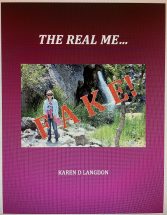 In the last few years, I’ve gotten into the habit of listening to news on an app on my phone rather than watching on a screen. I like to do so when exercising, when doing work in the kitchen, or when I have a task that doesn’t require a lot of brain power to accomplish. As I’m sure you would agree, listening to something while working through a task makes it seem a little easier and makes the time seem to go by faster.
In the last few years, I’ve gotten into the habit of listening to news on an app on my phone rather than watching on a screen. I like to do so when exercising, when doing work in the kitchen, or when I have a task that doesn’t require a lot of brain power to accomplish. As I’m sure you would agree, listening to something while working through a task makes it seem a little easier and makes the time seem to go by faster.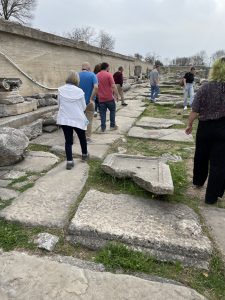 This past March, as a gift from our family to celebrate a landmark anniversary, my husband and I were blessed to be able to travel to Greece with some dear pastor friends. Our time there was relatively short, but we covered a lot of ground, traveling with a tour group by bus to many of the ancient cities and ruins therein, focusing on the places where the apostle Paul would have journeyed on his second mission. We had the most amazing guide who was extremely knowledgeable about both secular and sacred history. We truly had a wonderful time seeing and learning about this land that Paul was called to evangelize.
This past March, as a gift from our family to celebrate a landmark anniversary, my husband and I were blessed to be able to travel to Greece with some dear pastor friends. Our time there was relatively short, but we covered a lot of ground, traveling with a tour group by bus to many of the ancient cities and ruins therein, focusing on the places where the apostle Paul would have journeyed on his second mission. We had the most amazing guide who was extremely knowledgeable about both secular and sacred history. We truly had a wonderful time seeing and learning about this land that Paul was called to evangelize.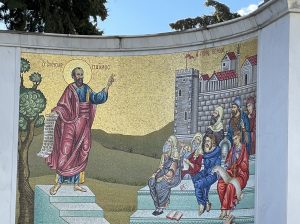 The distances and difficulties that would have been a huge part of the apostle’s missionary journeys were things that occupied my mind as I stepped where he literally did nearly two thousand years ago. We walked on a small part of the Via Egnatia, a Roman road on which Paul would have traveled from Neopolis (now Kavala) to Philippi. That stretch is ten miles, and Paul walked much, much farther than that! This, of course, is not even touching the hardships that Paul faced to proclaim the truth of Jesus’ Gospel. The Bible passages in 2 Corinthians 6 and 11 contain a summary of the trials he endured to live out his faith. “But as servants of God we commend ourselves in every way: by great endurance, in afflictions, hardships, calamities, beatings, imprisonments, riots, labors, sleepless nights, hunger;” (2 Corinthians 6:4-5, ESV). And in chapter eleven: “On frequent journeys, in danger from rivers, danger from robbers, danger from my own people, danger from Gentiles, danger in the city, danger in the wilderness, danger at sea, danger from false brothers;” (2 Corinthians 11:26, ESV). That’s not exactly an idyllic life or trip plan!
The distances and difficulties that would have been a huge part of the apostle’s missionary journeys were things that occupied my mind as I stepped where he literally did nearly two thousand years ago. We walked on a small part of the Via Egnatia, a Roman road on which Paul would have traveled from Neopolis (now Kavala) to Philippi. That stretch is ten miles, and Paul walked much, much farther than that! This, of course, is not even touching the hardships that Paul faced to proclaim the truth of Jesus’ Gospel. The Bible passages in 2 Corinthians 6 and 11 contain a summary of the trials he endured to live out his faith. “But as servants of God we commend ourselves in every way: by great endurance, in afflictions, hardships, calamities, beatings, imprisonments, riots, labors, sleepless nights, hunger;” (2 Corinthians 6:4-5, ESV). And in chapter eleven: “On frequent journeys, in danger from rivers, danger from robbers, danger from my own people, danger from Gentiles, danger in the city, danger in the wilderness, danger at sea, danger from false brothers;” (2 Corinthians 11:26, ESV). That’s not exactly an idyllic life or trip plan!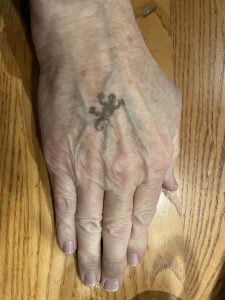 Occasionally, we have the pleasure of attending a program, concert, play, musical or sporting event in which one or more of our precious grandkids are participating. Our granddaughter, Josie, is quite a musical gal and not only sings beautifully but also plays both the piano and the French horn. Recently, we were blessed to be able to go to an area-wide high school orchestra concert where students from various schools who proved themselves competent on their instruments and stood out in their own local ensembles came together to experience performing at an even more proficient level.
Occasionally, we have the pleasure of attending a program, concert, play, musical or sporting event in which one or more of our precious grandkids are participating. Our granddaughter, Josie, is quite a musical gal and not only sings beautifully but also plays both the piano and the French horn. Recently, we were blessed to be able to go to an area-wide high school orchestra concert where students from various schools who proved themselves competent on their instruments and stood out in their own local ensembles came together to experience performing at an even more proficient level.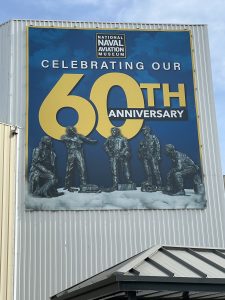 At the end of January, we took a little get-away trip to what my husband believed would be a fairly warm destination compared to our area in Colorado. Little did he know when he booked the trip well in advance that three days before our departure date the panhandle of Florida would experience their worst snowstorm in more than a century! Fortunately, while the eight-to-nine-inch accumulation wreaked havoc throughout its duration, in the next day or two, the generally warmer clime caused all evidence that this event even took place to disappear. Still, cooler temps, especially in the evenings, had us dressed in slacks, sweaters, and jackets throughout most of our time there.
At the end of January, we took a little get-away trip to what my husband believed would be a fairly warm destination compared to our area in Colorado. Little did he know when he booked the trip well in advance that three days before our departure date the panhandle of Florida would experience their worst snowstorm in more than a century! Fortunately, while the eight-to-nine-inch accumulation wreaked havoc throughout its duration, in the next day or two, the generally warmer clime caused all evidence that this event even took place to disappear. Still, cooler temps, especially in the evenings, had us dressed in slacks, sweaters, and jackets throughout most of our time there.